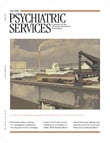"Meet the Expert" Cognitive Problem-Solving Cancer Support Group
Research shows that cancer patients consistently desire medical information. This patient-driven agenda to learn more about cancer and its treatments intersects with the need for new models for cancer support groups that can be tested empirically. Recruitment difficulties with current evidence-based treatments, which last 12–40 weeks or more, are often attributed to the competing demands of medical treatments, travel to the hospital, work, and family.
We designed a four-session cognitive therapy, problem-solving group with both efficacy and brevity in mind. A unique feature was "Meet the Expert," where participants could ask a leading oncologist questions about any topic relating to their illness. We tested its feasibility in pilot groups over two years with patients with chronic lymphocytic leukemia (CLL). CLL is unique in that it has two treatment phases, "watch and wait" and active treatment. Younger watch-and-wait patients are especially vulnerable to anxiety in the face of likely leukemic progression.
Three 90-minute weekly sessions were followed one month later by a maintenance session that allowed for practice and consolidation. Because many people solve problems and deal with illness collaboratively, patients were encouraged to bring along a family member or friend. Patients were asked to take notes for future reference and reflection. The program is outlined below.
Session 1 : Participants were socialized to the group and shared their illness narrative or supporting role. They were encouraged to formulate goals, which were developed collaboratively into a set of group goals. A 15-minute presentation with PowerPoint and handouts discussed problem-solving theory and the cognitive hypothesis, which states that it is not a situation (say chemotherapy) that causes an emotion, but rather one's perception of that situation (one person may perceive chemotherapy to be a disaster and another to be a salvation). Patients were primed to develop a list of questions for the CLL expert that they needed to ask in order to cope better. Participants' homework assignment was to refine their list.
Session 2 : In the first half-hour the list of questions was revised and prioritized as participants added their homework reflections and bridged the last session. The CLL expert then answered the group's questions for 30 minutes. After the expert's departure, participants discussed insights gleaned. Themes such as hope (fueled by the expert's creative drive), alternative medicine, uncertainty, and perfectionism were common. Homework centered on working out achievable and pragmatic ways for coping and living better.
Session 3 : After the group reflected on "meeting the expert" in the previous session and discussed the homework, it focused on ways to improve coping. Better coping was considered in the context of older coping patterns, often influenced by early childhood illness experiences and cancer attribution templates. The cognitive hypothesis was again reviewed. Techniques for analyzing advantages and disadvantages and reframing of distorted automatic thoughts were demonstrated collaboratively. Principles of the maintenance stage were explored (anticipation, gathering data, and problem-solving resources). Homework goals were set collaboratively.
Session 4 : One month after session 3, the group met to review progress and challenges. Cognitive principles and problem-solving theory were reinforced, and the termination of the group was explored. As with many groups coming to an end, mortality and past losses were often parallel themes. Watch-and-wait patients were asked to reflect on meeting others dealing with the challenges of active chemotherapy. Patients in active treatment were asked to offer suggestions to watch-and-wait patients. The preciousness of time was considered in the context of goal attainment.
Data collected pretraining and posttraining (the Penn State Worry Questionnaire-Abridged, Patient Health Questionnaire-9, and Distress Thermometer) showed improvement in elements of coping, such as worry and distress, but the small sample lacked power, thus precluding generalization of findings. Ratings on the acceptability of the intervention and open feedback demonstrated that the intervention was well received.
Advantages of this model are its brevity; its adaptation of problem-solving cognitive therapy, for which there is a solid evidence base in cancer; and a maintenance phase that fits in well with illness coping models where autonomy is encouraged.
One observed limitation of this model, as with other group therapies, was slow recruitment. CLL is relatively uncommon, and recruitment may be brisker with cancers of higher prevalence, such as cancer of the breast or lung. A further limitation is the need for an experienced cognitive therapist facilitator. Trials using trainee cognitive therapists as facilitators suggested that a cotherapist is necessary in these cases.
Other cancers with a watch-and-wait phase, such as prostate, or populations with a genetic vulnerability to cancer might provide opportunities for further testing and application of this model.



